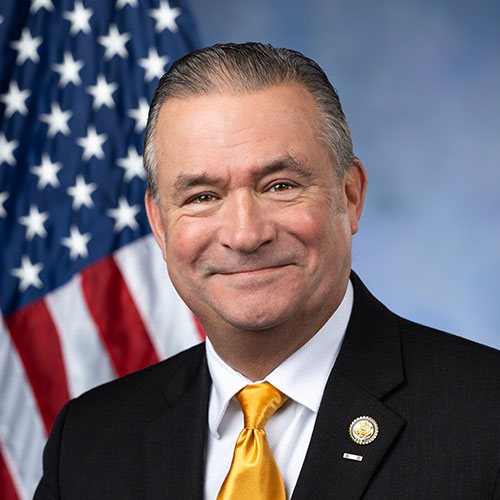WASHINGTON - Today, Rep. Don Bacon voted with his House colleagues to support final passage of H.R. 5009, the Servicemember Quality of Life Improvement and National Defense Authorization Act (NDAA) of Fiscal Year 2025, with a bipartisan majority of 281 to 140.
“After an intense two-year effort, I am pleased that this year’s NDAA is built around the needs of the All-Volunteer Force, which is the foundation of our America’s military strength,” said Rep Bacon, Chairman of the House Armed Services Committee’s Military Quality of Life Panel and the Cyber, Information Technology, and Innovation Subcommittee. “The 2025 NDAA is a historic victory for our service members and military families, and I am grateful for the bi-partisan effort that made it possible.”
The 2025 NDAA:
- Authorizes $895 billion for national defense – approximately 3 percent of U.S. gross domestic product – with significant investments in the defense industrial base, munitions production, and critical technologies, including artificial intelligence, space, autonomous systems, and hypersonic weapons. This amount is consistent with the topline defense discretionary spending agreement as part of the Fiscal Responsibility Act (FRA)
- Directs the most comprehensive reform of military quality of life programs in the history of the United States; this legislation was developed by the bi-partisan House Armed Services Committee Military Quality of Life Panel chaired by Rep. Bacon in the 118th Congress and delivers historic improvements to junior enlisted pay, housing, healthcare, childcare, and support to military spouses
- Authorizes a 14.5 percent targeted pay increase for junior enlisted service members and a 4.5 percent increase for all other service members
- Fully funds the modernization of the U.S. nuclear weapons enterprise to replace aging systems and reverse the dangerous decline in the effectiveness and reliability of America’s nuclear deterrent
- Combats antisemitism and imposes additional prohibitions on divisive radical ideologies and policies like critical race theory and controversial transgender medical treatments and therapies for dependent children of military personnel
The 2025 NDAA also includes the following additional legislative provisions championed by Rep. Bacon:
- Directs establishment of a subordinate unified command for cyber defense of the Department of Defense Information Network under U.S. Cyber Command
- Directs permanent establishment of the Department of Defense Hackathon Program
- Directs the Secretary of Defense to prepare a strategic assessment on space and satellite security for allies and partners in the Middle East, including the State of Israel
- Requires the Department of Defense to develop an operational modeling and simulation capability for multi-domain joint electromagnetic spectrum operations
- Extends the availability of security assistance funding for foreign capacity building for a period of up to three years
- Authorizes the Secretary of the Air Force to designate qualified former members of the Air Force as “Legacy Guardian”
- Directs the Department of Defense to maintain current student-to-teacher ratios
- Authorizes $158 million in military construction funding to begin planning and design associated with the permanent basing of the E-4C Survivable Airborne Operations Center (SAOC) aircraft fleet at Offutt AFB
- Authorizes $13 million for USSTRATCOM’s nuclear command, control, and communications (NC3) rapid engineering architecture collaboration hub (REACH) initiative at Offutt AFB.
“This year’s NDAA prioritizes the servicemembers and military families who valiantly dedicate their lives to defending us by making their quality of life the cornerstone of this legislation,” said Bacon. “This is a landmark defense bill, and I am grateful for the opportunity to have helped deliver on our promise to those who keep us safe and free.”
###
